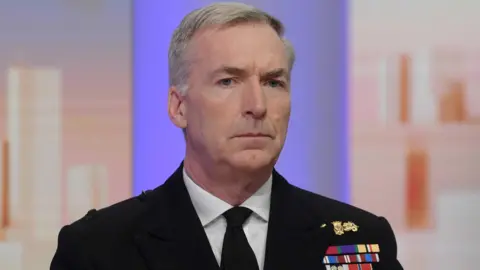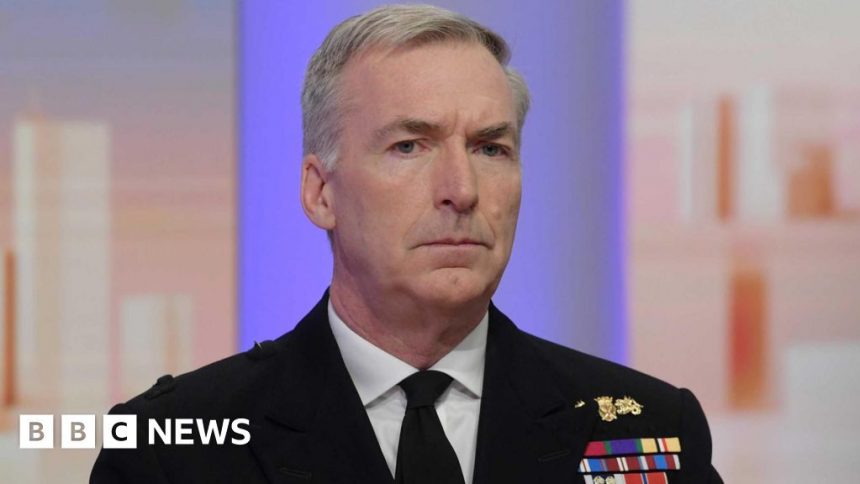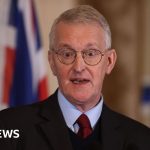‘Third nuclear age’ threatens the West, armed forces chief warns
 BBC
BBCThe world is at the dawn of a “third nuclear age” in which Britain is threatened by multiple foes including Russia, the head of the armed forces warned.
Admiral Sir Tony Radakin said “wild threats of tactical nuclear use” by Russia and China, Iran’s failure to co-operate with a nuclear deal, and North Korea’s “erratic behaviour” were among the threats facing the West.
He called for more defence funding and reform at the Royal United Services Institute (Rusi) defence think tank on Wednesday.
Despite the warnings, Sir Tony said there was only a “remote chance” Russia would directly attack or invade the UK if the two countries were at war.
Sir Tony added that Russian President Vladimir Putin is aware of the UK’s nuclear arsenal and said it has more impact on him than other threats.
Successive British governments had invested “substantial sums of money” in renewing nuclear submarines and warheads because of this, he said.
Sir Tony said Britain needed to be “clear-eyed in our assessment” of the threats it faces.
“That includes recognising that there is only a remote chance of a significant direct attack or invasion by Russia on the United Kingdom, and that’s the same for the whole of Nato,” he told the audience.
He said it was necessary to keep the UK’s nuclear deterrent strong, describing the first nuclear age as the Cold War and the second characterised by disarmament efforts and “counter proliferation”.
“We are at the dawn of a third nuclear age, which is altogether more complex,” he said.
This era is more dangerous than any he has known in his career and the world more contested than ever, he said.
The armed forces chief needs popular support to get more funding, so said he wants to stiffen the nation’s resolve and give people a sense of what he calls the tragedy of war without having to experience it. Hence his stark warning about the scale of the threat.
A spokesperson for the prime minister’s office said Defence Secretary John Healey had previously spoken about “the state of the armed forces that were inherited from the previous government”.
The spokesman said: “It’s why the Budget invested billions of pounds into defence, it’s why we’re undertaking a strategic defence review to ensure that we have the capabilities and the investment needed to defend this country.”
The armed forces chief’s speech came as the defence minister Alistair Carns warned a major war would lead to the army being wiped out within six to 12 months.
He told an audience at the same think tank that Britain needed reserves in order to be able to fight in a “war of scale”.
Official figures show the army had 109,245 personnel on 1 October, including 25,814 volunteer reservists.







